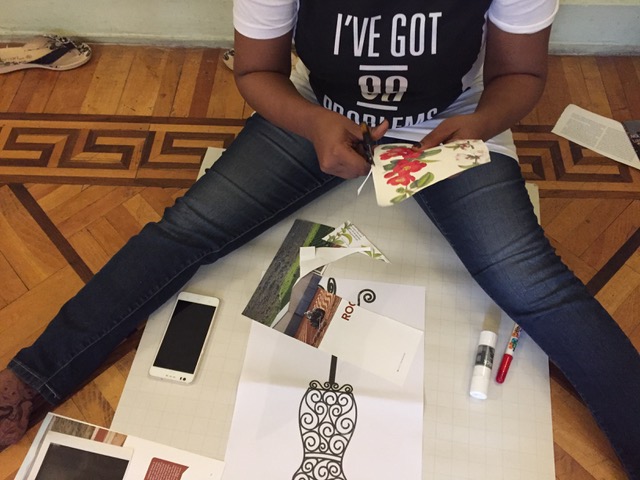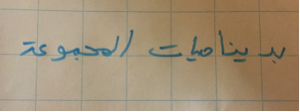
After my training mission in Egypt with Arab social workers I received a mirror full with written statements about my qualities. Flattering. Yet, I had the feeling of dealing with 99 external challenges. This is what I learned.
Working with groups from a conflict zone ensures that the trainees export their daily psychological, logistical and practical challenges with them, varying from a low attention span, travel limitations to tightening international anti-terrorism regulations on money transfers. Training in a venue that isn’t conformingly equipped is another challenge. We named ours ‘the Pyramid’, because we felt we had to install electricity and Internet ourselves. The cherry on the cake was a mouse participating in my daily trauma workshops. It frustrated me, yet what worked was a change of mindset: Don’t swim upstream, adapt to the situation and go with the flow.
As the levels of knowledge in the team differs, I use applied improvisation techniques to get the participants connected and in the mood for exchange and learning. The most serious lady said: “In daily life we have security issues, we have to mind our behaviour and be thoughtful of what society could think of us. These exercises make me discover an unexpected side of myself. It brings out joy and playfulness”. This learned me: Especially in a conflict zone, the playfulness of applied improvisation is welcomed. It is liberating to break the daily rut and experience joy from the inside.
One night we arrived home after midnight, and I noticed a disabled tissue-seller in a wheel chair with flat tyres in the middle of the street. I bought a pack of tissues and he asked me to push his wheel chair forward. I did. Until we arrived to an alley, where a young smiley teenager showed up and thanked me for pushing the man. He would bring him back home. It was such a caring sight to see him push the wheel chair. This showed me: In unexpected places, people are connected even if it doesn’t show at first sight.
Due to hierarchical power structures in the Arabic world, sharing feedback in a team can be uncomfortable. During a Training of Trainers component I introduced the participants to giving feedback on the mini-sessions they facilitated, starting with a positive remark. The ego of the most experienced lady clearly struggled to articulate a genuine compliment for the most junior colleague. One trainee suggested that the younger one could benefit form the other’s experience as a mentor. This brightened the eldest’ face. This reminded me: The wisdom is always present in the group. As facilitator you help a team to grow, one step at a time.
The 99 external challenges dominated my mind during the mission. This feeling evaporated weeks later when participants wrote that they enjoy looking into their own ‘mirror of compliments’ every day.



